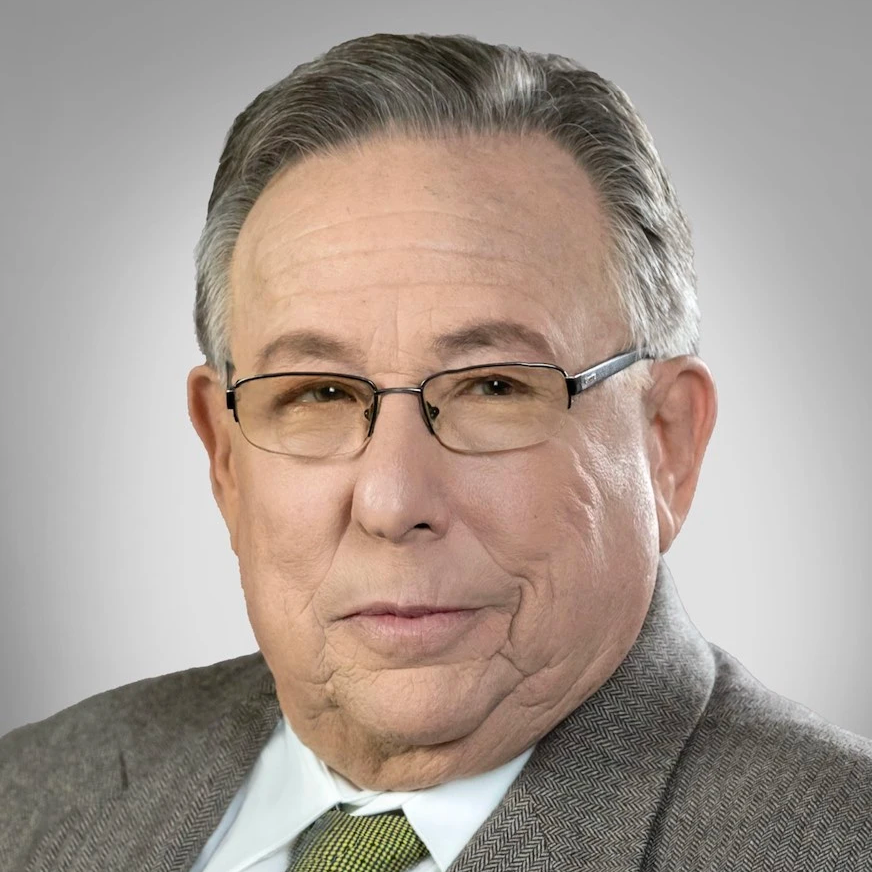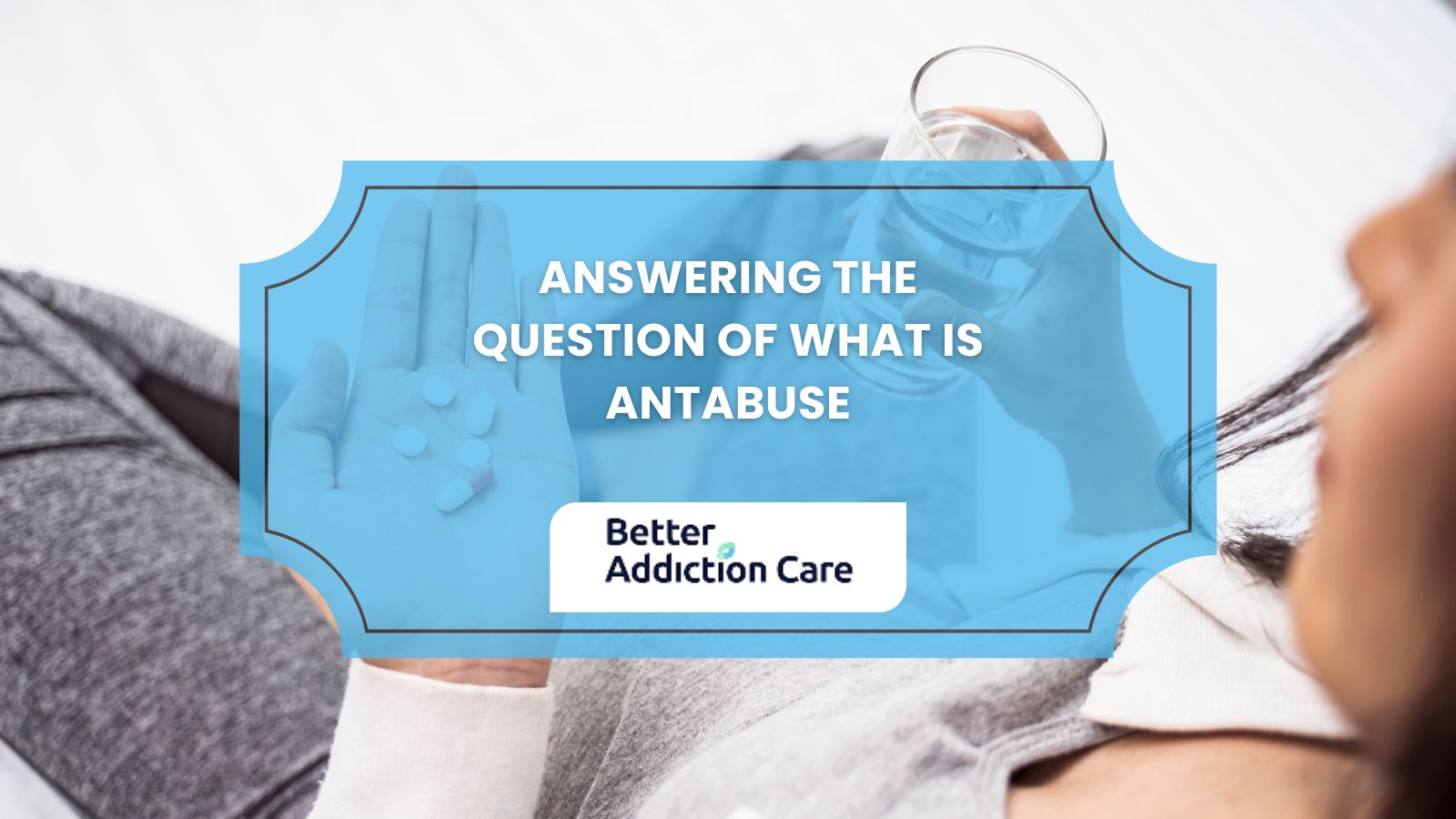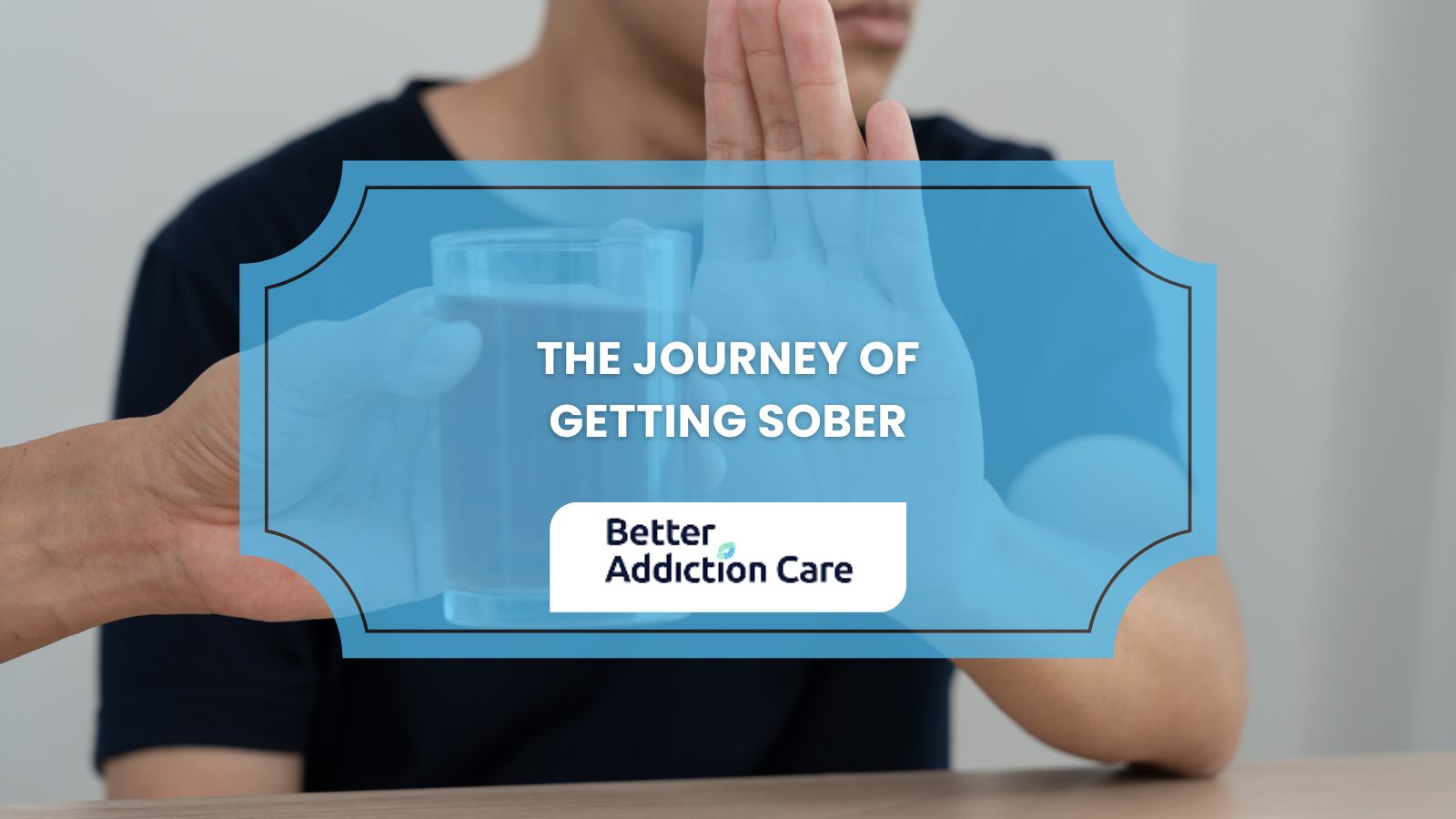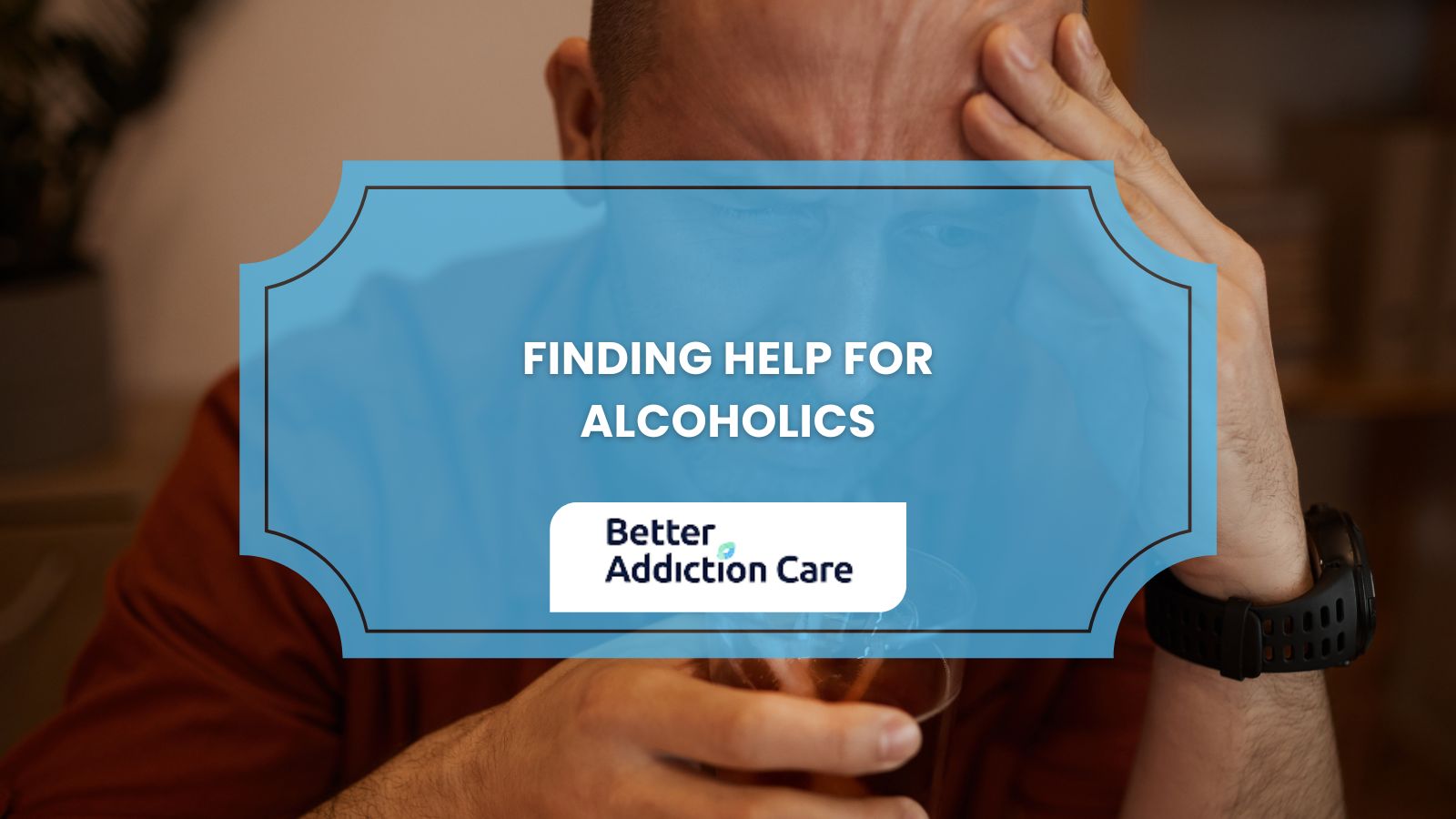Rehab Process for Addiction
The process of going to rehab begins with a thorough evaluation and medical supervision during withdrawal. This foundation leads to structured therapeutic interventions and a robust long-term recovery plan that supports you on your path to healing.
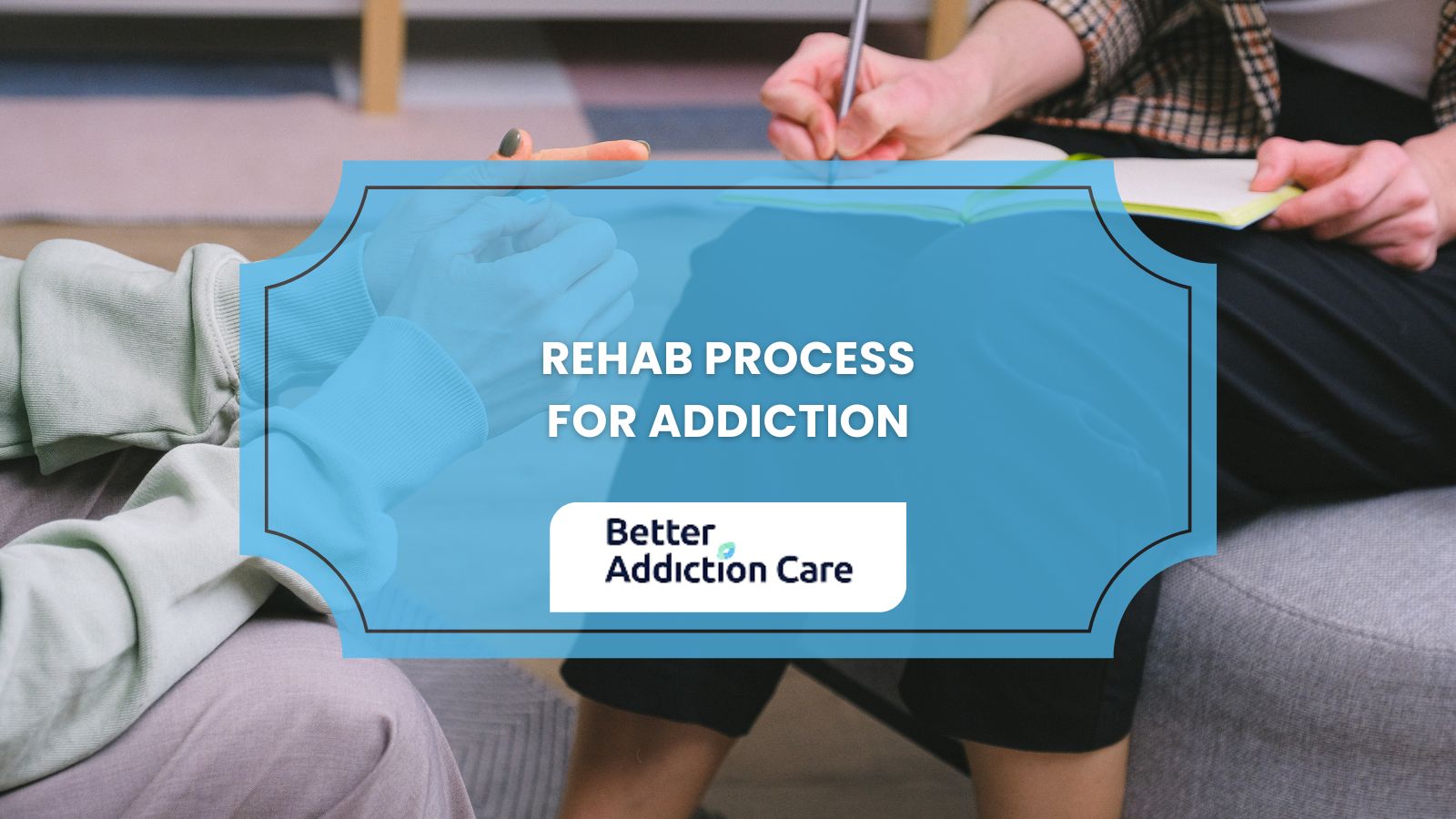
Therapy types supporting each rehab stage include motivational counseling, medication-assisted treatment, cognitive behavioral therapy, dialectical behavior therapy, family systems work, experiential treatments, relapse prevention strategies, peer recovery support, and contingency management. According to Statista (2023), among the USA's 17,353 treatment facilities, 83% provide outpatient care while only 24% offer long-term residential programs. Comprehensive treatment typically spans 30-90 days, though recovery timelines vary based on individual needs and circumstances.
Costs for each rehab stage include initial evaluations, medical detoxification, comprehensive treatment programs, and ongoing support services.
The rehab process for addiction takes around 30 to 90 days for comprehensive treatment, with the complete journey varying based on individual circumstances.
What Is The Process Of Going To Rehab?
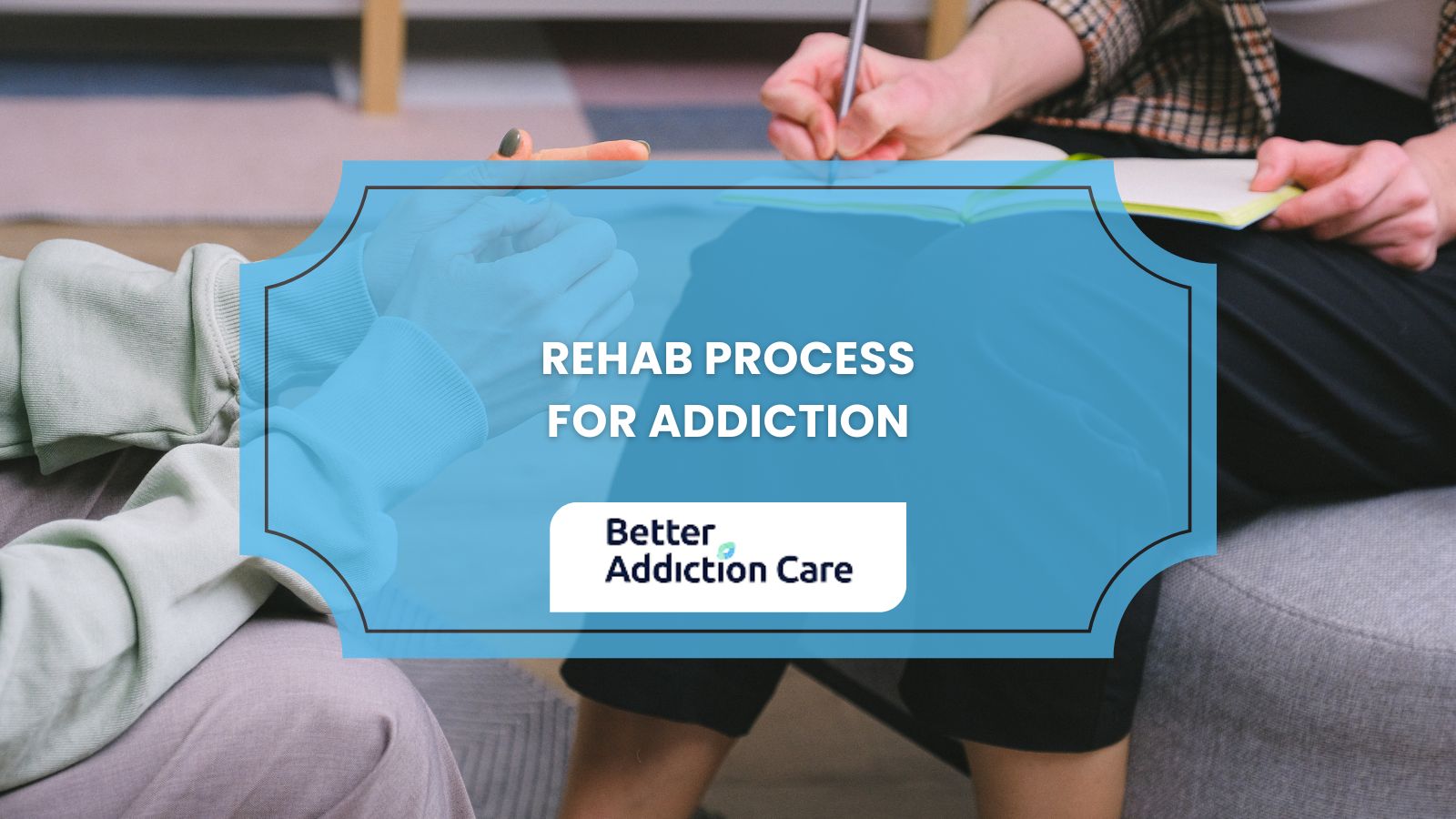
The process of going to rehab involves a comprehensive journey that includes thorough evaluation, medical supervision during withdrawal, structured therapeutic interventions, and long-term recovery planning. Key components encompass initial health assessments, medically supervised detox protocols, evidence-based therapy modalities, and strategic aftercare coordination.
Here are the key steps in the process of going to rehab:
-
Assessment and Evaluation: A multidisciplinary team conducts a thorough review of the individual's physical health, including medical history, current conditions, and any co-occurring illnesses. Mental health status is evaluated through psychological assessments and interviews to identify disorders such as depression, anxiety, or trauma-related issues. Substance use history is documented in detail, noting types of substances, duration, frequency, and previous treatment attempts. Social factors such as family dynamics, living environment, employment status, and support networks are examined. The comprehensive findings guide the creation of a personalized treatment plan tailored to the individual's unique needs and goals.
-
Detoxification: Medical professionals continuously monitor vital signs such as heart rate, blood pressure, and temperature to ensure safety during withdrawal. Withdrawal symptoms are managed with appropriate medications to reduce discomfort and prevent complications, including seizures or delirium tremens. Hydration is maintained through intravenous fluids or oral intake, and nutritional support addresses deficiencies caused by substance use. Detoxification typically lasts between 3 and 10 days, depending on the substance involved and the severity of dependence. The process prepares the individual physically and mentally for the next phase of recovery.
-
Rehabilitation: Evidence-based therapies such as Cognitive Behavioral Therapy (CBT) and Dialectical Behavior Therapy (DBT) target maladaptive thought patterns and emotional regulation. Motivational interviewing techniques enhance readiness and commitment to change. Group therapy sessions provide peer support and foster a sense of community, while family therapy addresses relational dynamics and encourages involvement in recovery. Educational components include relapse prevention strategies, stress management, and development of practical life skills such as communication, time management, and problem-solving. Medication-assisted treatment options, when appropriate, help reduce cravings and support sustained abstinence.
-
Aftercare Planning: A detailed relapse-prevention plan identifies personal triggers, high-risk situations, and specific coping strategies to maintain sobriety. Ongoing therapy sessions reinforce skills learned during rehabilitation and address emerging challenges. Participation in support groups offers continual encouragement and accountability. For individuals requiring additional structure, sober living environments provide safe, substance-free housing with peer support. Vocational assistance and financial counseling help rebuild stability and independence. Regular follow-up appointments with healthcare providers ensure monitoring of progress and timely intervention if relapse signs appear.
What Types of Therapy Support Each Stage of the Rehab Process?
Therapy types to support each stage of rehab include motivational counseling, medication-assisted treatment, cognitive behavioral therapy, dialectical behavior therapy, family systems work, experiential treatments, relapse prevention strategies, peer recovery support, and contingency management.
The table below provides comprehensive details about how each therapeutic approach corresponds to specific rehabilitation stages.
|
Stage |
Therapy |
|
Assessment and Evaluation |
Motivational Interviewing |
|
Detoxification |
Medication-Assisted Therapy |
|
Rehabilitation |
Cognitive Behavioral Therapy, Dialectical Behavior Therapy, Family Systems Therapy, Experiential Therapies |
|
Aftercare Planning |
Relapse Prevention Training, Peer Recovery Support, Contingency Management |
What Are The Costs for Each Stage of the Rehab Process?
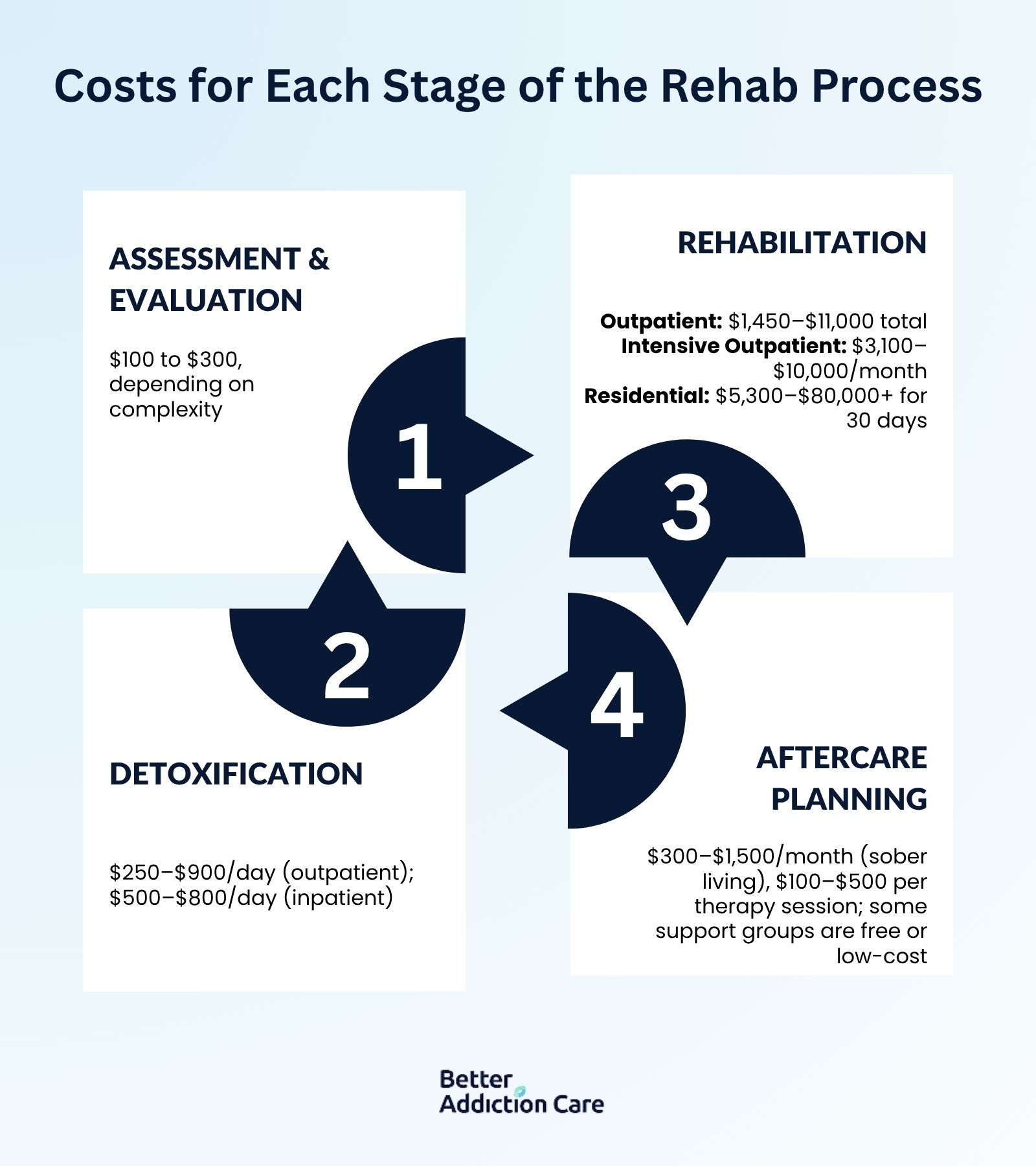
The costs for each stage of the rehab process include initial evaluations ranging from $100 to $300, medical detoxification from $250 to $900 daily, comprehensive treatment programs from $1,450 to over $80,000, and ongoing support services from $300 to $1,500 monthly. These expenses encompass assessment fees, supervised withdrawal management, therapeutic interventions, and post-treatment planning to ensure sustained recovery.
Here are the key costs associated with each stage of the rehabilitation process:
-
Cost of Assessment and Evaluation: Initial assessments typically range from $100 to $300, depending on the depth of evaluation and whether psychiatric screening or diagnostic testing is included.
-
Cost of Detoxification: Outpatient detox costs between $250 and $900 per day. Inpatient detox is more intensive and ranges from $500 to $800 per day, depending on medical supervision and medication needs.
-
Cost of Rehabilitation: Outpatient programs cost $1,450 to $11,000 for a full course. Intensive outpatient programs range from $3,100 to $10,000 monthly. Residential rehab varies widely, from $5,300 to over $80,000 for 30 days, especially in luxury centers.
-
Cost of Aftercare Planning: Aftercare expenses include $300 to $1,500 per month for sober living, $100 to $500 per therapy session, and ongoing support services such as relapse prevention and group meetings, which are sometimes free or low-cost.
How Long Does the Rehab Process for Addiction Take?
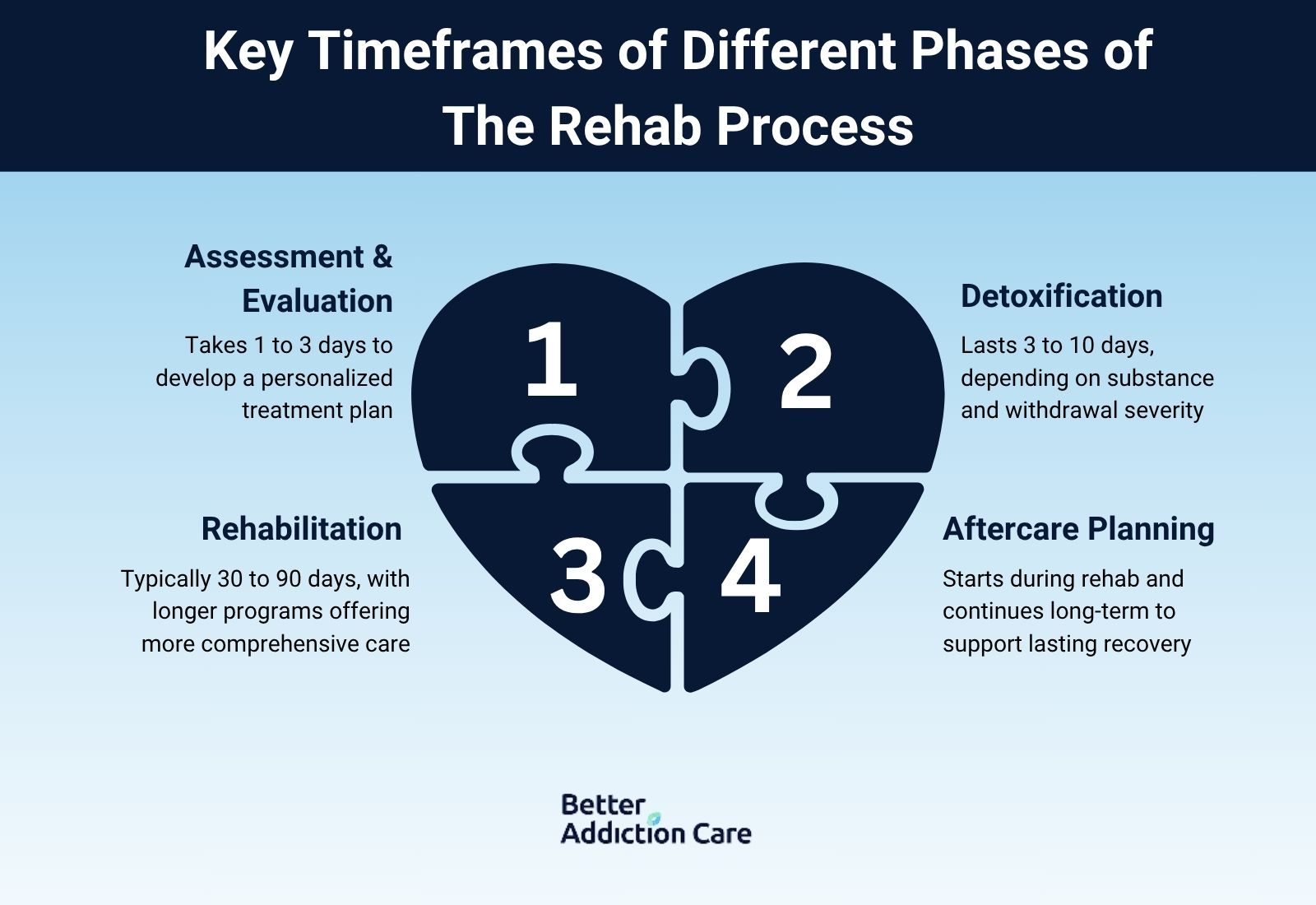
The rehab process for addiction takes around 30 to 90 days for comprehensive treatment, though the complete journey varies based on individual circumstances. The recovery timeline encompasses initial medical evaluations, medically supervised withdrawal management, intensive therapeutic interventions, and ongoing relapse prevention strategies.
Here are the key timeframes of different phases of the rehab process:
-
Duration of Assessment and Evaluation: Assessment usually takes 1 to 3 days. During this time, medical and psychological evaluations determine the individual’s needs and help develop a tailored treatment plan.
-
Length of Detoxification: Detoxification typically lasts between 3 and 10 days, depending on the substance and severity of dependence. Medical supervision ensures safety and manages withdrawal symptoms.
-
Timeline for Rehabilitation: Rehabilitation programs generally range from 30 to 90 days, with 90-day rehab providing the most comprehensive treatment duration. This phase includes therapy, education, and support to address behavioral changes and build recovery skills.
-
Timeline for Aftercare Planning: Aftercare planning begins during rehab and continues indefinitely. It involves creating relapse-prevention strategies, ongoing therapy, support groups, and sometimes transitional housing to support long-term recovery.
What To Expect in Rehab?
In rehab, expect a structured daily routine that includes medical supervision if needed, individual and group therapy sessions, educational activities on addiction and coping skills, and support for mental and physical health.
How Should I Prepare for Rehab?
You should prepare for rehab by finalizing your decision, arranging time off work or responsibilities, informing loved ones, packing necessary personal items, and mentally preparing to engage fully in the recovery process.
How Do I Choose the Right Rehab Facility?
To choose the right rehab facility, start by researching options through online directories, local health services, and community resources. Evaluate your specific treatment needs, including the type and severity of addiction. Verify accreditation and licensing, review available evidence-based therapies, evaluate staff qualifications, and assess location and cost factors, including insurance coverage.
At Better Addiction Care, we understand the importance of finding the right support. Use our local rehab facility locator to find facilities tailored to your specific needs. This tool simplifies the search process, ensuring you find a facility that aligns with your treatment goals and preferences.
What Insurance and Payment Options Are Available?
Insurance and payment options available at rehab centers include private health insurance plans, Medicaid, Medicare, state-funded programs, and self-pay methods such as cash, loans, or payment plans. Many facilities employ insurance specialists to help navigate coverage details and offer financing options for uncovered costs. It’s essential to explore all available options to ensure you find a solution that fits your financial situation.
At Better Addiction Care, we encourage you to verify insurance to understand your coverage and benefits fully. Our team is here to assist you in navigating the complexities of insurance and payment options, ensuring you receive the support you need without financial stress.
What Benefits Do Luxury Rehabs Offer For Individuals Struggling With Alcohol Addiction?
The benefits of luxury rehab for alcohol addiction include personalized treatment plans tailored to individual needs, access to upscale amenities such as private rooms, gourmet meals, spa services, and fitness facilities that create a comfortable, stress-free environment. These centers combine evidence-based therapies with holistic approaches to support physical, mental, and emotional healing. Choosing a luxury alcohol rehab offers a comprehensive, supportive setting that enhances recovery and long-term sobriety.
Related Articles
Treatment Centers in Virginia



